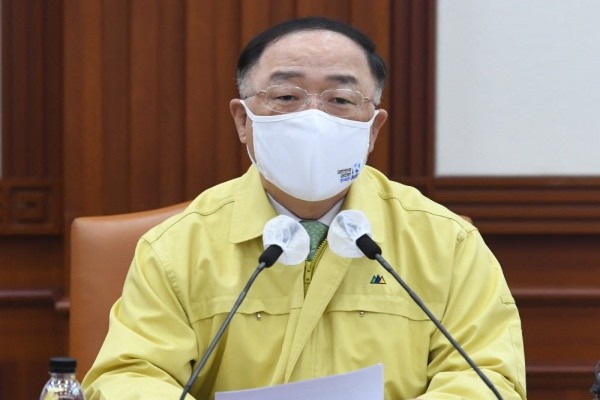The South Korean Government has decided to invest $11.7 billion (12.7 trillion KRW) in the Digital New Deal this year that will be three times more than how much it invested last year which was $3.22 billion (3.5 trillion KRW).
Its goal is to enhance its Data Dam project, which is carried out to innovate industries based on AI (Artificial Intelligence) and data, and focus its abilities into digital transformation of SOCs (Social Overhead Capital) such as rivers and ports and ultimately have the people in South Korea really feel digital transformation taking place in the country. It also plans to actively invest in future technologies such as 6G and AI.
The South Korean Government held a cabinet meeting on Wednesday and decided on this year’s plan for the Digital New Deal.
The government plans to invest $11.7 billion including private investments into the Digital New Deal that is now two years in.
It will invest $9.10 billion (9.9 trillion KRW) including a $4.78 billion (5.2 trillion KRW) government expense in enhancing data, network, and AI economic structure.
It will invest $269 million (292.5 billion KRW) and construct additional 150 types of “data for AI learning” such as Hunminjeongeum and have 44,000 public data (142,000 cumulative data) available to the public. It also plans to build a digital “Jiphyeonjeon” so that the people in South Korea can easily access public knowledge.
It plans to increase tax reduction for investments in plant and equipment to 3% in order to spread 5G within hyper-connected infrastructures and supply 6,000 smart factories based on 5G and IoT (Internet of Things) at the same time.

It will also start investing in future technologies regularly. It will invest $112 million (122.3 billion KRW) in development of important technologies such as 6G technology and design, device, and equipment and process for AI semiconductor. It plans to create a $919 million (1 trillion KRW) “Smart Korea Fund”, which is set aside for companies that specialize in contact-free services, and find 200 promising startups in the field and provide them with industrialization capital. It will also invest $827 million (900 billion KRW) in having public services become part of cloud computing.
For “digital transformation of SOCs”, it plans to invest $1.93 billion (2.1 trillion KRW) that includes a $1.65 billion (1.8 trillion KRW) government expense.
It will invest $478 million (519.7 billion KRW) in order to become the first country in the world to develop fully automated driving technology by 2027 and set up an intelligent traffic system (ITS) on 45% of national highways.
For “spread of contact-free infrastructures” related to smart education and telemedicine, it will invest $643 million (700 billion KRW) including a $551 million (600 billion KRW) government expense. Its goal is to set up high-performance Wi-Fi in 270,000 classrooms of elementary and middle schools and supply up to 80,000 tablet PCs in order to implement digital education.
It expects that the people in South Korea will truly feel effects of the Digital New Deal by applying digital technologies to SOCs and infrastructures.
It is also looking to accelerate reformation of regulations by passing ten major Digital New Deal bills. It will prepare public data policies as “public-private joint data control tower” within the Presidential Committee on the 4th Industrial Revolution and push for revision of related regulations. It will prepare laws for online education and guidelines for teleworking and enact a public spatial information framework act at the same time.
It plans to invest $53.5 billion (58.2 trillion KRW) in the Digital New Deal by 2025.
“The Digital New Deal will be an important project that will determine whether South Korea’s “New Deal” becomes successful or not.” said one official from the Ministry of Science and ICT. “We are going to make sure that the Digital New Deal is stabilized and related policies are solidified.”
Staff Reporter Park, Jisung | jisung@etnews.com